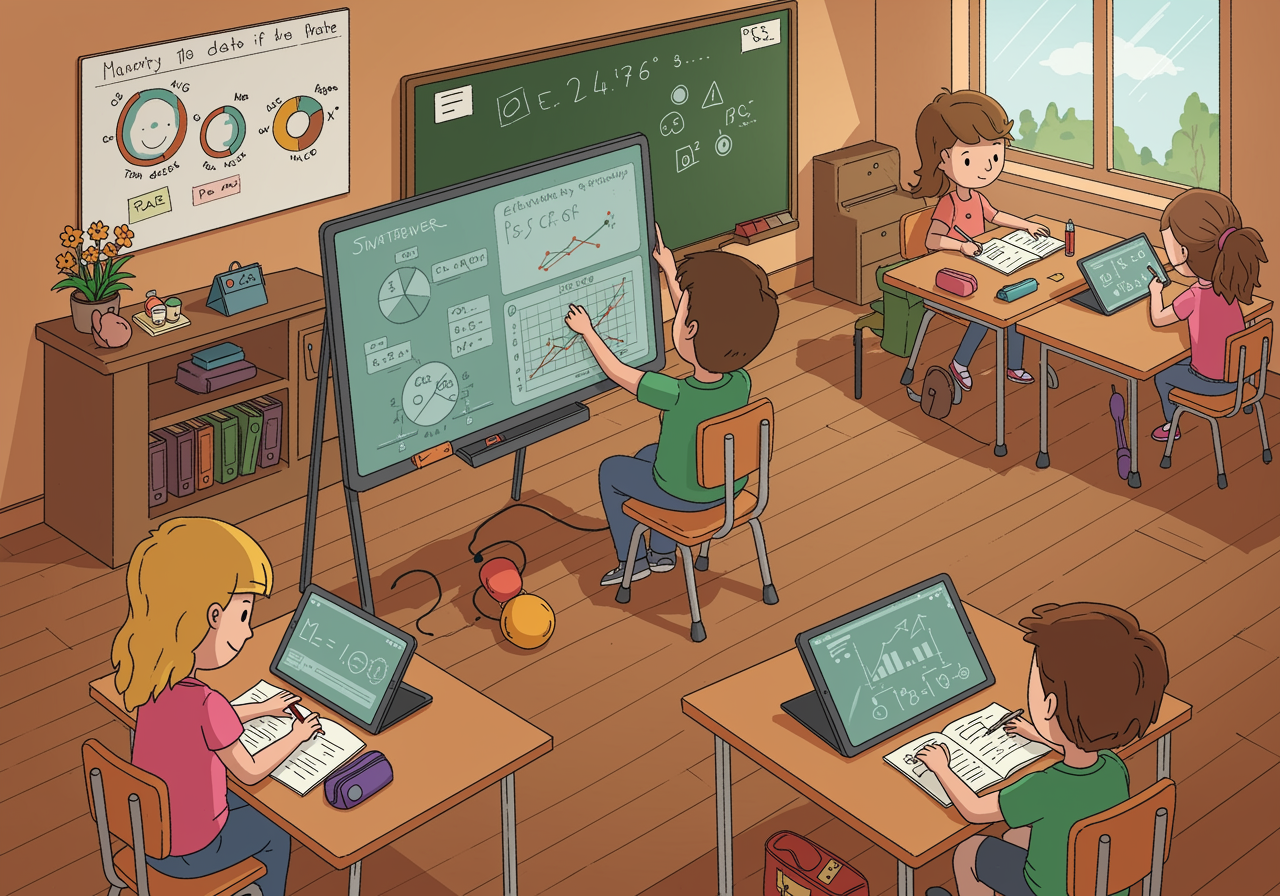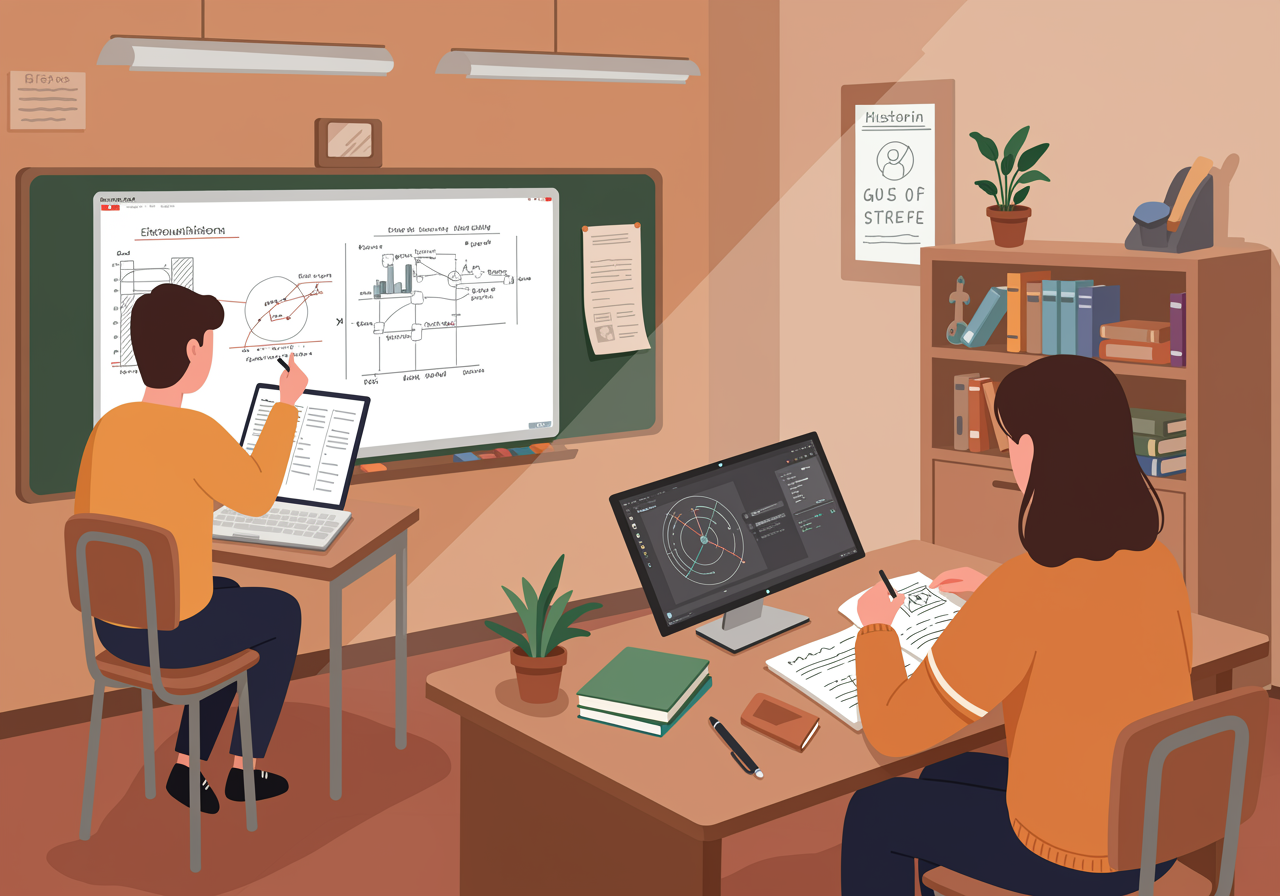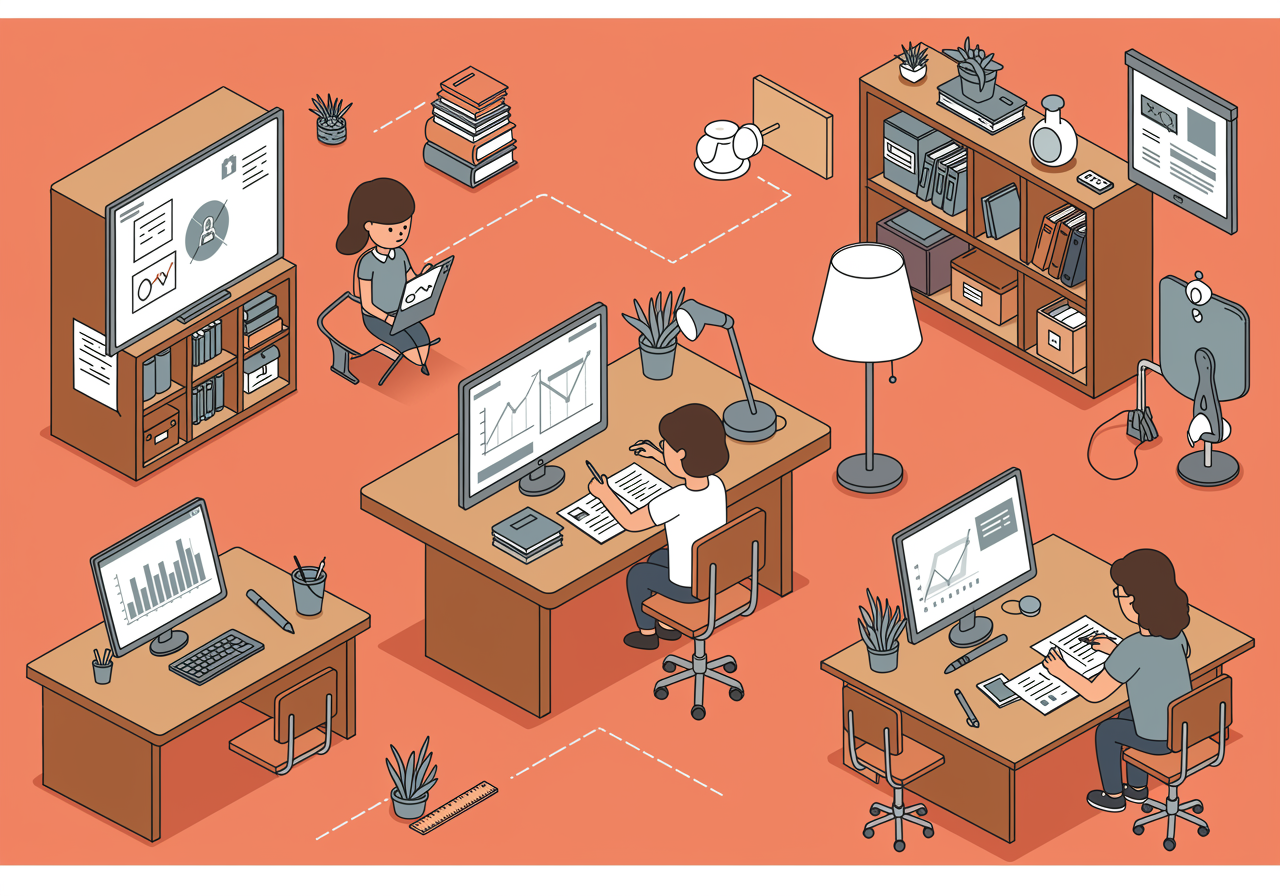Screens vs. Scenes: The Great Classroom Tech Debate

Discovering why some classrooms embrace gadgets while others stick to good old-fashioned learning
Dive into the exciting debate about whether tablets, smartboards, and apps make learning better or just more distracting.
Overview
Walk into any school today and you'll see everything from smartboards to student laptops, but not everyone agrees this is a good thing! Some teachers swear by technology to make learning more engaging and interactive, while others worry it creates more distractions than benefits. This debate affects your teen directly since they're living it every day in their classes. Understanding both perspectives helps families make informed decisions about technology use and opens up great conversations about balanced learning.

Understand in 30 Seconds
Get up to speed quickly
- The Tech Supporters Say: Technology makes learning more interactive, helps students with different learning styles, and teaches digital skills they'll need for future jobs.
- The Tech Skeptics Worry: Screens can distract from deep thinking, reduce face-to-face social skills, and make it harder for students to focus on one thing at a time.
- It's Not All or Nothing: Most educators agree it's about finding the right balance – using technology when it truly enhances learning, not just because it's available.
- Students Have Opinions Too: Research shows kids prefer a mix of both digital and traditional learning methods, depending on what they're studying.
Real Life Scenario
Situations you can relate to
Imagine two students, Maya and Jake, studying the same history lesson but in different classrooms. Maya's teacher uses an interactive timeline on a smartboard where students can click on events to see videos and primary sources. She works with classmates on a shared digital document to create a presentation. Meanwhile, Jake's teacher uses printed maps and textbooks, has students take handwritten notes, and organizes a classroom debate with no screens in sight. Both students learn about the same historical period, but their experiences are completely different. Maya loves how the technology helps her visualize complex timelines and collaborate easily with friends. Jake appreciates how he can focus deeply on reading without notifications popping up and enjoys the energy of face-to-face discussions. Which approach would work better for your learning style?

Role Play
Spark a conversation with “what if” scenarios
What if you were a school principal deciding whether to buy tablets for every student?
- Role play: One parent plays the principal, the child plays concerned teachers and parents with different viewpoints. Debate the pros and cons while staying in character.
What if you could design your dream classroom – would it be high-tech, low-tech, or somewhere in between?
- Role play: Draw or describe your ideal learning space together, then explain your choices and compare different approaches.
What if technology suddenly disappeared from schools for a week?
- Role play: Act out how different subjects (math, art, science) would be taught differently, and discuss what would be lost or gained.
FAQs
Frequently asked questions people want to know
Does technology really help students learn better?
Research shows mixed results – it depends on how it's used. Technology works best when it supports specific learning goals, not when it's just added for its own sake.
Are kids more distracted in tech-heavy classrooms?
Some studies suggest yes, especially with internet access during lessons. But well-designed educational apps can actually increase focus and engagement.
Will kids miss important social skills if they use too much classroom technology?
Balance is key. Technology can enhance collaboration through shared projects, but students also need plenty of face-to-face interaction and discussion time.
Examples in the Wild
See how this works day to day
- Finland's schools use minimal technology and consistently rank among the world's best in education, focusing instead on play-based learning and critical thinking. (OECD Education Reports)
- During COVID-19, schools worldwide rapidly adopted digital learning, with mixed results – some students thrived while others struggled without in-person interaction. (UNESCO Global Education Monitoring Report)
- Studies show that students who take handwritten notes often remember information better than those who type, due to the cognitive process involved in writing. (Psychological Science Journal)
- Virtual reality programs are helping students explore ancient Rome and the human body in ways traditional textbooks never could, increasing engagement and retention. (Journal of Educational Technology Research)
In Summary
What you should know before you start
- Technology in classrooms isn't inherently good or bad – it's all about how and when it's used
- Different students learn differently, so the best classrooms offer a variety of both digital and traditional tools
- The goal should always be enhancing learning, not just using technology because it's available
- Balance is key – students benefit from both screen time and screen-free deep thinking time
Pro-tip for Parents
You got this!
If your teen seems frustrated with too much or too little technology at school, ask them specific questions about what works for their learning style. Instead of taking sides in the debate, help them think critically about when different tools are most helpful. This builds their ability to advocate for their own learning needs and think thoughtfully about technology use in general.

Keep an Eye Out For
Find these examples in everyday life
- News stories about schools adopting or restricting technology use – great conversation starters about different approaches
- Your teen's homework habits – notice when they're more focused or distracted with different types of assignments
- Parent-teacher conferences where you can ask about the school's technology philosophy and your child's response to it
Explore Beyond
Look up these related research topics
- How social media affects teen attention spans and study habits
- The science behind why handwriting might help memory and learning
- How different careers use technology and what digital skills are most important for the future